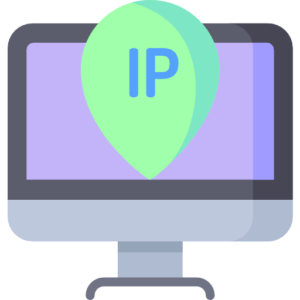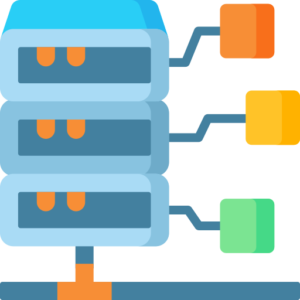A static IP address is an IP address that does not change. This is in contrast to a dynamic IP address, which can change periodically. If you are hosting a web server, email server, or any other kind of server, having a static IP address makes it easier for customers to find you via DNS. Practically speaking that means it’s quicker for clients to get to your websites and services if they have a static IP address. In this guide, we will discuss why does a server need a static IP address?
Note: If you can not find your device’s IP address then have look at our post on how to find your IP address.
What is a static IP address?

A static IP address is one that does not change. When your device has been given a static IP address, it usually maintains the same number until it is obsolete or architecture modifies. A static IP address is one that has never been used. Servers and other critical equipment frequently employ them.
IP addresses are allocated by (ISPs). Depending on the type of service agreement you have with your ISP, you perhaps or perhaps not be assigned a static IP address. For the time being, let’s pretend that a static IP address increases your ISP agreement costs.
A static IP address might be in the form of either IPv6 or IPv4; the most important feature is that it is constant. Every device on the network might one day have a special static Internet Protocol Version 6 address. We are not quite there finally. For permanent addresses, we usually utilize static IPv4 addressing at the moment.
Dynamic vs Static IP address
A static IP address is a constant address. Once your device has a static IP address, it usually keeps the same one until you decommission it or your network architecture changes. Computers, routers, and other critical equipment usually use static IP addresses.
ISPs provide static IP addresses. Depending on the type of service agreement you have with your ISP, you may or may not get a fixed IP address. We’ll get to it later, but assume that a static IP address increases the cost of your ISP contract.
A static IP address might be in the form of either IPv4 or IPv6, but the important thing is that it is static. Every piece of networked equipment, perhaps even every device, may have a unique static IPv6 address one day. We’re still a ways off from that. For the time being, we tend to use permanent IP addresses with static IPv4 configurations.
When should I utilize a static IP address?

It’s a good idea to use an IP address that is static on your network for computers, tablets, and other devices that will need access from other systems or devices frequently. Because the IP address will not alter, it’s simple to identify a device on the network with a static IP address. When computers are connected to the Internet (as with a web server), or it is critical that data connections are never disrupted, they should be given static IP addresses. This feature might be useful for network print servers, serial over IP gadgets, and other types of hardware.
When Not to Utilize a Static IP Address

Because a fixed IP address is assigned manually in a mobile setting, it is less efficient for a network administrator to do so. Someone must go to the device in person to assign it an IP address instead of allowing DHCP to do so automatically.
A static IP address, for example, on a smartphone would not be desirable because the address might not be supported on the new network, preventing access to the internet.
In this case, segment addressing is more convenient since administrators may quickly set it up. With automatic configuration, dynamic host scheduling protocol (DHCP) allows mobile devices to seamlessly transition between networks.
How to get a static IP address?
Contact your Internet Service Provider’s customer care center and ask if they can provide you with a static IP address. Give them the MAC address of the device you’ll be assigning the permanent IP. It might take a few days for your IP address to be assigned.
How to Get a Static Public IP Address
Before the advent of the Internet, most ISP’s assigned all of their IP addresses to clients automatically because there were not enough available IP numbers.
Contact your service provider if you need a static IP address. A static public IP address can’t be obtained without requesting it from your ISP. Customers may also obtain a static IP through the purchase of a premium service plan and additional fees.
Why does a DHCP server need a static IP?

A static IP is required when we create the DHCP role on Windows Server. Why does a DHCP server need an IP address, but why is it necessary that it be static? The DHCP server may receive its address from another source and still respond to a broadcast if it has an IP.
Is your router a DHCP server?
The router is started in DHCP server mode by default. All computers connected to the LAN are assigned IP addresses, DNS servers, and default gateways by the router. You may use another device on your network as the DHCP server, or you may configure each computer’s network settings.
What is DHCP static IP configuration?
A static IP address is always assigned by an administrator and does not change. You can still use DHCP to create static IP addresses even if the term “dynamic host configuration protocol” suggests otherwise. This enables the network printer to maintain the exact IP address after it restarts, even if you change it.
How to check if your IP address is static or dynamic?
Check to see whether you’re using a Static IP address or a Dynamic IP address. Under Network in System Preferences, select Advanced and then TCP/IP. If you select MANUALLY, you have a static IP address, and if you pick USING DHCP, you have a dynamic IP address.
Is it possible to improve ping with a static IP address?
A static IP is simply a permanent IP, and a dynamic IP isn’t any different. In comparison to a dynamic IP, having a static IP will not improve or degrade network performance.
Do I need Ddns if I have a static IP?
You may simply request that your ISP give you a fixed IP address, but this isn’t always feasible. The solution is to utilize Dynamic DNS (DDNS). If your camera does not support DDNS, you should check the router’s documentation to see if it supports it.
Does DNS do anything for gaming?
The use of new DNS servers does not seem to improve latency in online gaming. When you alter your DNS servers, you may sometimes see improvements in download and upload speeds (bandwidth), despite the fact that there is no proof that it will minimize ping or latency when thoroughly studied.
Does changing DNS affect anything?
Changing your DNS server may alter your Internet access. It won’t affect how you use the Internet because, in most circumstances, you’ll be using the IP address rather than domain names to access websites. Your browser, on the other hand, will translate the domain name to an IP address for you, so you’re not even aware of it.
Why Would I Need a Static Private IP Address?
If you wanted to run a server that was accessible over the internet, you needed a static private IP address in the past. For example:
DIY Web Server

To ensure that anyone in the world may access your web server on your home network, you must forward incoming requests for port 80 to the computer running your website. The router would change the IP of your server if it were to restart. Your new server IP address may have changed. When your old server IP address changes, the port forwarding rule you created to send requests on port 80 to it no longer works. Despite the fact that your server may be operational, your website would be down.
Retro Gaming

You may need to forward certain ports on some older routers and gaming consoles in order to play online multiplayer games. Universal Plug’n’Play (UPnP) is a networking feature that allows routers to establish port forwarding rules automatically when needed.
Frequently asked questions

Do static IP addresses increase speed?
Is static IP faster than DHCP?
Should I use a reserved IP address?
Conclusion
We do hope that you loved reading our guide on why does a server need a static IP address? IN this guide we have discussed what exactly is a static IP address? what are some common IP types? and when to use it or when not to use it. We have also shared some commonly asked questions regarding static IP speed and does it increase your internet speed especially if you are gaming?